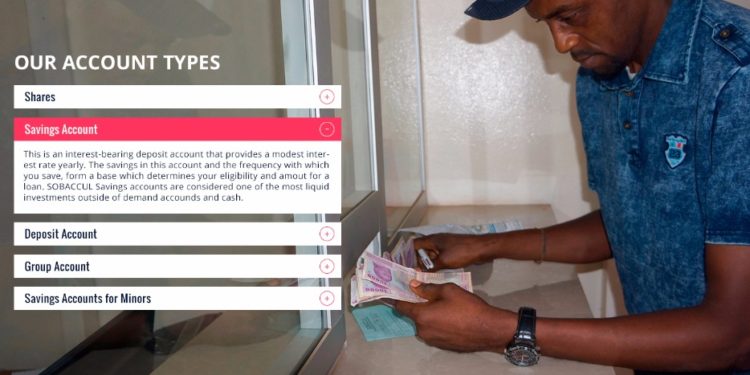SOBACCUL explains the aim of credit unions to include: “to be self-sustainable to be able to facilitate an enabling environment, provide quality financial and technical services to members as well as market the CU concept in order to make “Credit Union” a household word”. Their definition reveals that credit unions exist only to serve its members but not to profit from their needs. SOBACCUL emphasises that though credit unions must operate on sound business principles to be financially sustainable to serve their members, they are not purposely organized to accumulate money or to make profits.
Credit Unions in Cameroon have a clear and insistent desire to reduce poverty. They believe that by developing financially sustainable, well – governed financial institutions in every small community, they can achieve this goal. It is therefore pertinent to mention that, it is for the above concepts and values, that the Soba Co-operative Credit Union was formed to help reduce poverty and develop the people.
The Role of Microfinance institutions post COVID-19
In life-and-death matters such as the COVID-19 pandemic, a focus on financial matters can seem misplaced. But for the world’s poor, the financial impacts of COVID-19 can be devastating and far more immediate.
The poor will likely lose labour income, whether through illness or lack of demand for their services as enterprises comes to a standstill. The level of those relying on public aid will swell considerably, assuming such aid even exists.
Loan repayments will fall into arrears and microfinance lenders may struggle to remain solvent. Remittances, often a lifeline for the poor, will likely diminish as remitters lose income themselves and are unable to send money home.
If historical experience is any guide, the microfinance sector will soon face deep distress. Given the extent of the coronavirus health crisis and the depth of the economic fall-out throughout the world, it is doubtful that national or multilateral institutions will be able to provide the full support that the sector – and the millions of low-income people it serves – needs.
Financial leaders must come together urgently to organize a rescue effort that focuses on the following key principles:
– A standstill or moratorium on principal repayments is the first step
– Strong top-down leadership and institutional capacity
– Emergency liquidity funds need to be set up
– Efforts to save MFIs should focus on minimizing loss of services to clients
– Creditors and investors will need a heterogeneous mix of financial instruments
– Clients need to be protected throughout the process
– Robust digital payments infrastructures are key to getting money quickly and efficiently to those who need it.








